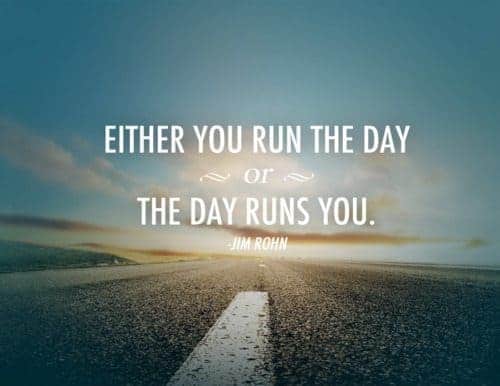10 Harsh Realities Only Low Income People Will Understand
It was with a judgmental attitude that I began working with low income people about 15 years ago.
I figured I could inspire and motivate them to get off the couch and get to work.
Over the years, I discovered that while personal choices often play a role in poverty, society also creates difficulties for low-income people that make life difficult.
The bottom line: it ain’t easy being poor.
Here are some realities you may not realize low-income people are dealing with consistently in their quest NOT to be hungry, homeless, or hopeless.
1. Laundromat Lunacy
Until last summer, I never really understood the pain of the Laundromat.
We were moving and had temporarily set up a home in a small apartment with no washer and dryer.
I have always thought of laundry as having a small impact on my daily schedule.
You sort and get the laundry going, and then you can do other tasks.
Once every 30-40 minutes, you move the laundry forward and then take time to fold or hang up clothing.
It is the ultimate multi-task task.
However, when you need to go to the Laundromat, you cannot simply take off to do other tasks.
There’s a chance your clothing won’t be there when you return.
I thought I could get work done while I waited for the clothes to wash or dry, but with screaming children, an old black-and-white television blaring, and other distractions, that would not happen.
The lunacy of the Laundromat becomes a mission and a task all alone that can take up a good portion of your day.
2. Bathroom Issues
Now, with almost 15 years of experience working with low-income people, I feel I can share a crude but real issue that often plagues homeless people.
Many never feel quite safe going to the bathroom, so they do what they must.
They hold it, and they hold it, and they hold it.
At the shelters where I have worked, they check in and soon begin to feel safe.
Then they unload, and it clogs toilets.
Health issues can soon arise for those who never find a safe shelter.
3. Creative Tool Usage
Having the right tools is awesome.
I love to find the correct screwdriver, hammer, or scissors as the situation may require.
Over the years, I have collected many items and know people who can share tools as needed.
What if, though, you need scissors but don’t have any?
Those with a bit of cash can easily go to the store and make a purchase.
However, if you are on a tight budget, you may have to do what you have.
In this example, a knife can serve as scissors, a screwdriver, a pry bar, and a knife if you need to defend yourself.
4. Money Sharing Woes
An unwritten rule of the culture of poverty is that: if I have money and you need it, I will share it with you.
With that rule in place, low-income people will often get visits from friends and family on the same day that any check is expected.
5. Unstable Housing
Nearly every time there is an election, housing rules and programs for those in poverty change.
Social workers change out regularly; some are easier to work with than others.
Those in poverty live on the edge consistently of losing their housing with any of these changes.
Add to that the challenge that these houses are typically in unsafe neighborhoods, and you get a sense of how unstable their situation can be.
6. Medical Madness
How awesome it is to live in a nation where we can run to the drugstore and get cold medicine or have some Tylenol on hand for those aches and pains.
Conversely, low-income people must go to the doctor first if they want medical help from the state.
Of course, you go to the emergency room as you are in pain right now, or that cold threatens your ability to keep that minimum wage job.
That five-dollar bottle of aspirin just went up to over $100.
7. Shelter Shenanigans
I, of course, am thrilled that we have shelters for those living on the streets or in unsafe locations.
I have been working at shelters now for over 14 years.
But the gameplay and the soap opera that takes place within them are better than any reality television ever produced.
Gossip and rumors get people chased out of the shelters.
Sometimes, the staff is cruel as they experience burnout just as often as guests are trying to move up on the pecking order and work to get others out of their way.
8. Food Bank Fixin’s
Food banks are great for getting people with low income fed.
No doubt the bags of groceries are saving lives and filling hungry bellies.
However, those food banks must give what has been donated by others.
Over the years, I have watched as the healthy options in that bag are very limited.
Over time, those in poverty develop a taste for junk food, and their health suffers.
Ultimately, the life we saved with the food bank was made unhealthy and will cost our society much to help restore them to good health.
9. Transportation Troubles
On bad grocery shopping days and I have had to park at the back of the parking lot, I cringe a bit as I have to dodge moving cars and other obstacles on my way to place my groceries in my vehicle.
But that is minor compared to those who are in poverty.
They must somehow navigate their groceries back to their homes without a car.
Think of what it would be like to carry your groceries on the city bus.
Some opt for a taxi, which would raise the cost of their meals.
Think of getting to work, particularly if you can only get a minimum wage job with hours late into the night.
Transportation troubles can keep low income people in poverty.
10. Social Worker Woes
In many parts of the nation, social worker life spans are short.
They have a passion for helping people, but that passion wanes.
It is difficult working with a system that rarely understands, or with people who feel entitled and are demanding.
Many social workers will work for less than five years and move on to other professions that cause less emotional pain.
This means that those in poverty need to work with someone new and maybe less experienced.
Often, low-income people know more about the system than the social workers.
What can you do?
Low-income people are typically not lazy – they long for a better life.
They do not all have addictions; they are not stupid and willing to work harder than most of us.
They simply lack the resources to get their life moving.
We can become mentors for those in poverty and help them move forward.
Learn from them and share with them your keys to success.
But listen to them first.
Seek to understand them, and they will teach you how to change your world.












ZK Green
February 1, 2019 at 6:37 PM
Good afternoon,
I enjoyed reading your article. However, there is no such thing as “low-income people or even wealthy people for that matter.” It really all boils down to degrees and levels of consciousness. If African-American kids in the inner city were exposed to the same exact knowledge and information as White kids in Beverly Hills…guess what??? Both groups of kids would be set to tackle this manmade system and progress and succeed. But, that’s not the case now is it?
We all need a heart beat to live. We all need a certain amount of oxygen to reach our brains to live. We all need blood flowing through our veins to live. Guess what? We as humans are blessed to receive that and it doesn’t cost money does it?